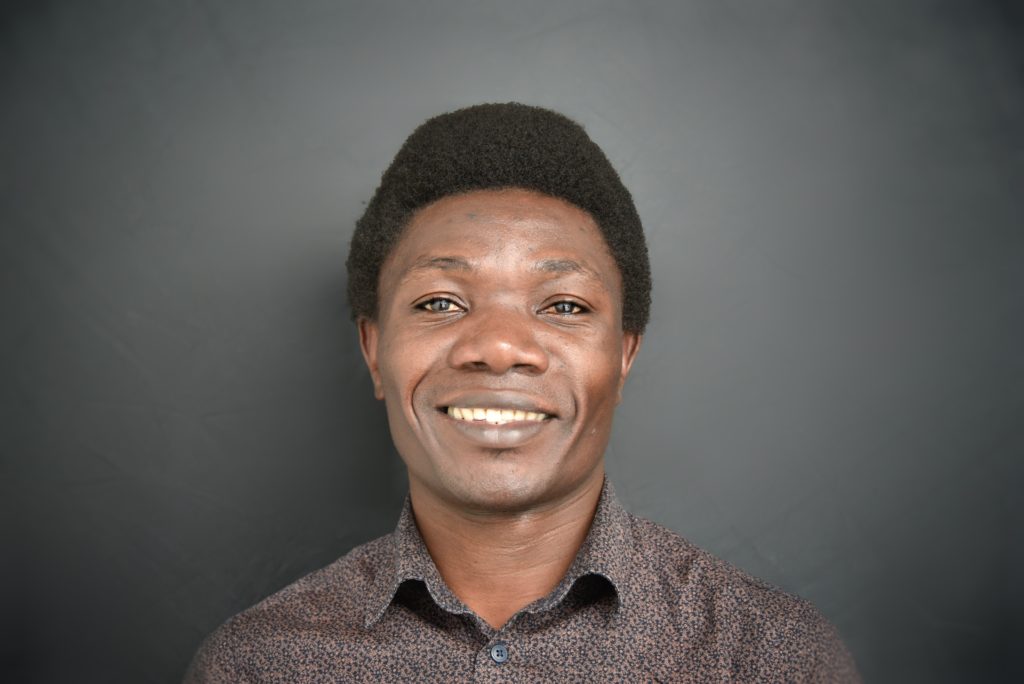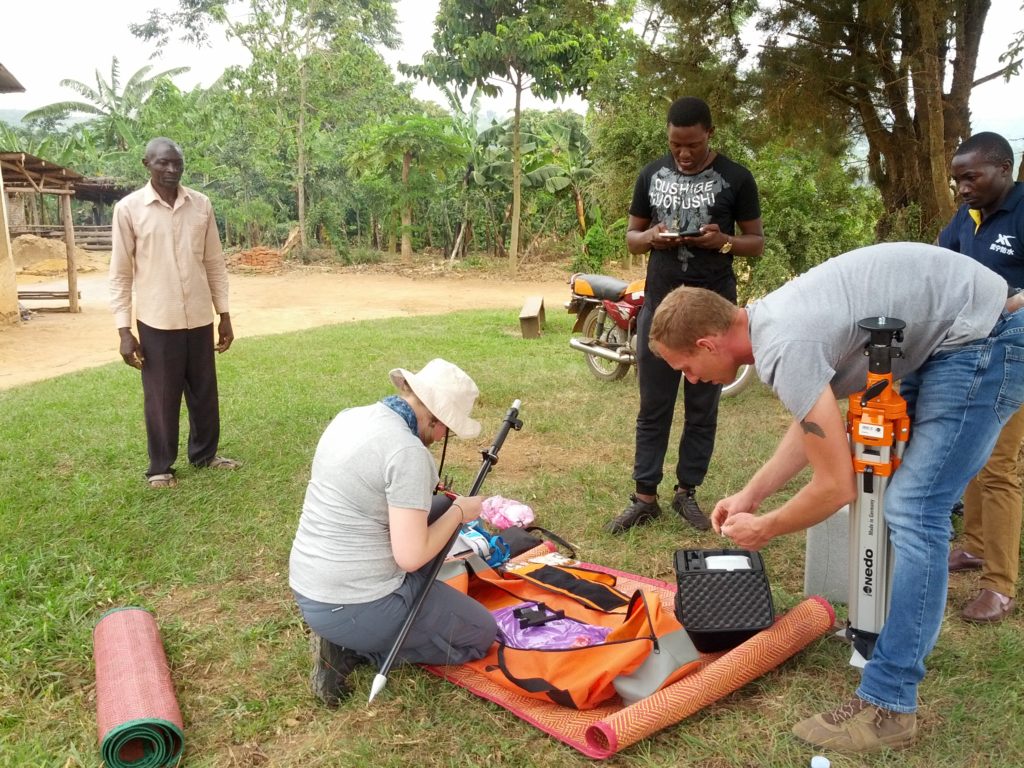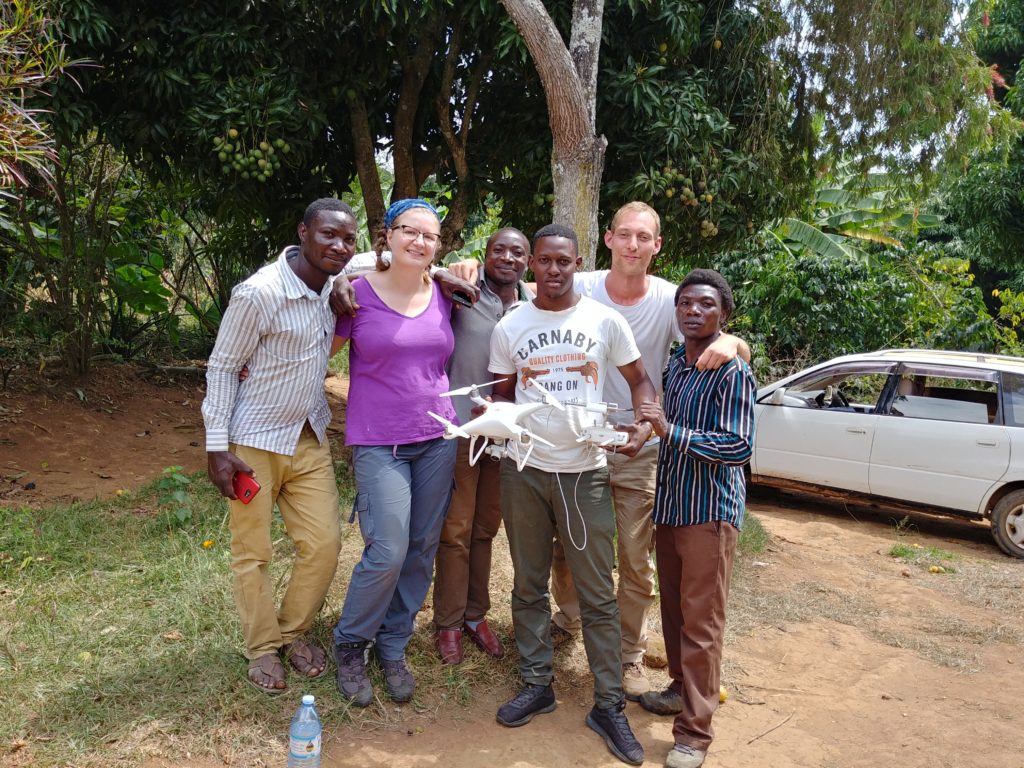He is making a difference; a tree at a time – every tree makes accounts
Born and raised in rural Uganda, on the edge of an abundant forest, Kabiito always felt a strong connection with the trees/forest surrounding his home. Growing up, these multi-species mighty trees played a vital role for him, his family and community, providing firewood, food and construction materials, among others.

A graduate of philosophy and Peace and Conflict Studies, in the course of his studies Kabiito recognized an existential detachment from the serene natural environment that added priceless value and meaning to the life of his community, due to continued loss of natural landscapes. A phenomenon exacerbated by unprecedented deforestation and general land-use-change in the last two decades.
In seeking to make a personal contribution towards addressing the problem, Kabiito began raising seedlings of Mangifera indica, Persea americana (Avocado), Papaya carica, Markhamia lutea, Terminalia ivorensis and, Milicia excelsa trees in 2011 at his university’s compound, most of which were given (free of charge) to faculty members, students and community members who showed interested in planting them. By 2014, his focus was given to Milicia excelsa and Khaya senegalensis (both threatened species). Afterwards he extended this initiative to Karamoja region, the driest corridor of the country, where Khaya senegalensis (a drought resistant tree species) is being raised and planted, in Moroto and Nakapiripirit districts. By end of 2017, over 12,000 seedlings mostly of both threatened species, had been propagated and made available to communities for planting.
Currently, Kabiito is a faculty member of the Uganda Martyrs University and an International Climate Protection Fellow of Alexander von Humboldt Foundation, hosted by Hochschule Rhein-Waal (HSRW) (by Prof. Dr. Dietrich Darr), where the SPECTORS project had the chance to get involved in this valuable research.
Current research
Kabiito´s research is entitled “The Potential Contribution of Indigenous and Naturalized Fruit Tree Planting to Sustainable Food Systems, Climate Change Adaptation and Resilience in Masaka and Kalangala Districts”.
Trees and forests form one of the most important ecosystems for the survival and well-being of a diversity of organisms. In addition to providing food and minerals to humans and wildlife, they also provide regulation of climates, purification of air, carbon sinking, water cycling, timber, medicines, fodder, and construction materials. Yet, deforestation is still engulfing these invaluable resources on a global scale. Between 1990 and 2015 alone, 129 million hectares of forest cover was lost globally[1], threatening 21% of the global plant species with extinction and reducing tree-based food potentials[2].
It is evident, however, that better management of forests, tree resources, and their genetic diversity can be an effective response to many challenges of climate change[3].
The goal of this research project is to contribute towards tree resource-aided conservation pathways, as a climate protection response, by increasing knowledge of the occurrence and functions of selected food bearing tree species.
The main objectives to be studied are:
- To map the current distribution and abundance of 8 indigenous and naturalized food trees in the study area.
- To identify the social, cultural, ecological and economic benefits of the trees of interest.
- To analyze cost-benefits of indigenous food trees vis-à-vis introduced food tree species.
- To determine adoption barriers that explain the limited inclusion of indigenous food trees in tree planting practices by farmers.
- To design methodologies and implementation strategies for increasing indigenous multipurpose tree planting in rural areas.

Upon this backdrop, the study explores the potential benefits of integrating indigenous and naturalized food-bearing trees into reforestation, afforestation and agroforestry systems in central Uganda. Since deforestation and tree loss decrease food sources and can increase food insecurity, tree planting initiatives should seek to simultaneously address the food insecurity challenge, alongside promoting biodiversity conservation and climate protection. The study was undertaken using socio-economic survey and farm-based tree survey. In July 2018, two members from the HSRW SPECTORS team visited 20 farms in Masaka district, central Uganda to offer technical data collection support to Kabiito.

Acknowledgement: Kabiito is deeply thankful to the SPECTORS Project and Rhine-Waal University of Applied Sciences for making airborne imagery and tree survey data collection processes possible. Special thanks go to Dr. Bethany Melville, Mr. Moritz Prüm, Prof. Dietrich Darr and Prof. Rolf Becker, for the invaluable support in the entire research process, and to Wamala Charles, Kibira Peter and Kalanda Mike for their assistance in the field. He acknowledges the exceptional opportunity provided to him by Alexander von Humboldt Foundation to contribute towards the climate protection discourse.
The SPECTORS team is looking forward to the results of the study and wish Kabiito all the best with his research. We were honoured to assist him in such an important study.
For further information:
Interview of Kabiito Bendicto
https://www.youtube.com/watch?v=IVFhZYybuDA
Interview of Dr. Bethany Melville https://www.youtube.com/watch?v=IT2VoKAmeeg&t=8s
[1] FAO, 2016. Forestry for a low-carbon future Integrating forests and wood products in climate change strategies, Rome: Food and Agriculture Organization of The United Nations.
[2] RBG Kew, 2016. The State of the World’s Plants Report – 2016, Royal Botanic Gardens, Kew.
[3] CGIAR Research Program on Forests, Trees and Agroforestry, 2017. ‘Flagship 4: Climate change adaptation and mitigation’, Forests, Trees and Agroforestry: Livelihoods, Landscapes and Governance, Available at: http://foreststreesagroforestry.org/wp-content/uploads/2013/08/Component-4.pdf, Accessed on: 19th February, 2017

